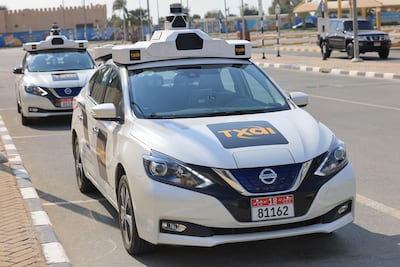Generative AI, made possible by innovations in AI supercomputing, has become one of the most promising applications of artificial intelligence in recent years, marking a new phase of the Fourth Industrial Revolution. Today's models, including ChatGPT, are capable of not only enabling conversations in natural language but also writing scientific papers, finding bugs in code, and creating pictures in the style of Vincent van Gogh, offering huge potential to significantly improve business productivity and competitiveness. ChatGPT, in particular, has been a breakthrough moment, enabling the general public to directly witness the capabilities of AI.
The UAE has recognised the importance of generative AI and has made significant investments to further AI and its capabilities. Driven by the National AI Strategy 2031, the country has invested heavily in the development of AI infrastructure, talent, industry regulations, research and centres of excellence. To further support the development of its AI ecosystem and foster research, innovation and entrepreneurship, the country has also launched the Mohamed bin Zayed University of Artificial Intelligence (MBZUAI). According to a report by PwC, AI has the potential to contribute $320 billion to the Middle Eastern economy by 2030, with the UAE leading the way with a projected contribution of $96 billion.
Common use cases currently being tested include classic chatbot functions in customer service, answering expert questions in legal or R&D departments, and creating step-by-step instructions for troubleshooting production machines. Adopting advanced technology and innovation to explore future approaches is a top priority in the country's vision to further enhance the scientific position that the UAE achieved.
The use of a new supercomputer by MBZUAI will pioneer AI technology that contributes to scientific and research communities, a step to advance the UAE’s global AI leadership. The robust supercomputing and AI technology will significantly enhance the university’s ability to run complex AI models with extremely large data sets and increase predictability in research analyses in fields including energy, transport and the environment.

Despite the significant potential of AI, it is important for companies to have a realistic view of the technology's limitations. Generative AI poses practical, legal and ethical challenges. Therefore, companies should not overestimate their capabilities but should consider the conditions required to scale up the technology.
For companies that want to increase their competitiveness through continuous innovation, the time to start exploring generative AI is now. However, the use of AI chatbots in the enterprise is complex and requires extensive competencies, preparations, processes, technology and continuous development for scalability and sustainable productivity. Prerequisites and dependencies for moving from pilot to production at scale include data maturity level, data architecture and governance, hybrid platform approach, digital sovereignty and process integration.
First, a generative AI initiative will only survive and scale if a company has reached a certain data maturity level – that is, strategic, organisational and technical capabilities that enable it to create value from data using AI.
Moreover, if an AI chatbot is to be used for company-specific use cases, it must be continuously trained with data from the company. Hence it relies on the availability of this data in sufficient quantity and quality. This may be feasible with tactical data projects for individual pilots — but when it comes to scaling the chatbot deployment, a consistent company-wide data architecture and governance are required.
While model training and inference can both run on the centralised AI supercomputers operated by the large language model providers (for example, Technology Innovation Institute, OpenAI, Aleph Alpha, Google), in the long run, companies will have to establish a hybrid or edge-to-cloud platform approach. This is because use cases with real-time inference require that models run on local AI infrastructure to minimise latency. Moreover, as training data is increasingly distributed across locations, enterprises need a way to aggregate that data without centralising it as the latter is too costly, slow and insecure.

Additionally, digital sovereignty is key to the use of generative AI, as it reduces dependencies and protects intellectual property. The market for large language models will probably be dominated by a handful of providers worldwide. Therefore, companies should ensure digital sovereignty by running protected local instances of the large language models on premises.
Finally, when planning AI applications, organisations often neglect the need to integrate them into existing operational and technical processes. This is a major reason for the failure of AI initiatives in the transition from pilot to production operations. Relevant processes include application and data lifecycle management, security, operational planning and control processes, operational safety, and risk management.
Despite the complexity of using generative AI in the enterprise, it is crucial to find the right balance between systematic planning and unconstrained creativity, as well as between a top-down and bottom-up approach. Starting with lighthouse projects driven by individual business units can secure senior management support. Ideally fulfilling several functions at once, they can encourage other business units to join in, and allow for an approach where technical foundations, such as a data-centric architecture, are introduced step by step.
In conclusion, generative AI is a transformative technology with vast potential to improve enterprise productivity and competitiveness. The UAE has recognised the significance of AI and is committed to harnessing its power through strategic investments in infrastructure, talent and industry regulations. With AI expected to contribute significantly to the Middle Eastern economy by 2030, the UAE is well-positioned to lead the way. However, as with any technology, companies must have a realistic view of its capabilities and consider the necessary conditions for successful implementation.


